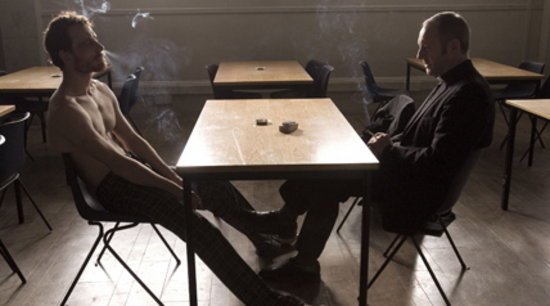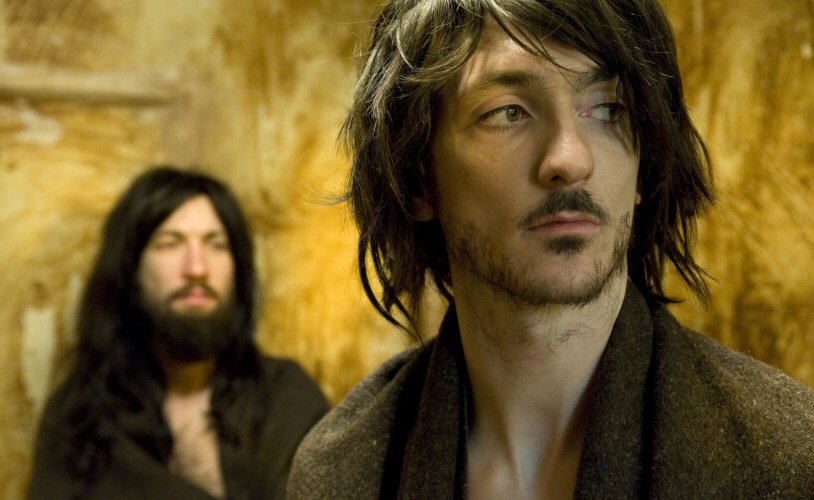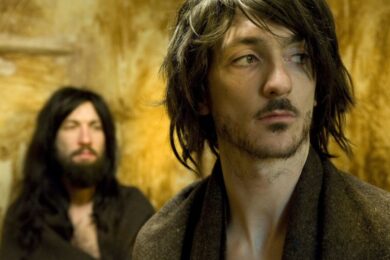Many films are made about brave individuals taking a stand against an unshakeable authority and, ultimately, losing. Cool Hand Luke a thinly veiled reference to the failure of late 60s counterculture, and Braveheart, a thinly veiled reference to Mel Gibson’s disdain for the English, are probably the most famous examples. The message, usually, is that one must stand up against tyranny regardless of how futile that resistance might be. Sometimes the protagonists failure even spurns on others to resist.
This common plot is classic Greek tragedy and the blueprint is probably Antigone. The crib notes: Antigone opposes her father-in-law Creon’s decree. Creon warns that he will have to punish her to set an example. Antigone knowing full-well her fate, disobeys anyway. Creon punishes her. She kills herself. Creon’s son kills himself too. Everybody’s sad.
It’s an archetypal underdog story which has been used as a metaphor of everything from good v. evil, democracy v. totalitarianism, or feminism v. male domination. But during the Nazi occupation, a French playwright called Jean Anouilh produced a completely different take on the Antigone story. In Anouilh’s version, there is no clear protagonist or antagonist; everyone is equally to blame for unfolding the tragedy. If Antigone had not been so concerned with family honour or if Creon had been more lenient or even if the prison guards had simply let her escape, none of this would have happened. No one wants the tragedy to happen but it is inevitable because they each play their part in the process. Or at least that’s how I read it.
This is exactly how Steve McQueen (the Turner Prize winning artist not "Bullitt") addresses the 1981 IRA hunger strike at the Maze prison. It is similarly a tragedy, because we all know the ending before the film starts. We see the events from the perspective of a guard, mournfully washing his bloody knuckles, a young storm trooper breaking down under the strain, and numerous prisoners suffering under horrible (albeit partially self-imposed) conditions. Make no mistake, this is war and everyone suffers in their own way. Everyone is simply doing their job and it just so happens that all their duties will lead to the death of 10 men.
It is this ‘balanced’ perspective that puts Hunger firmly in the tradition of other responsible political films like The Battle of Algiers and miles away from the popcorn histories championed Gibson. Having said that, when you think of responsible approaches to politically sensitive subject matter, you normally think of works of simulated documentary realism such as the aforementioned Battle of Algiers or tv’s The Wire. We read these as ‘real’ because we associate shaky cameras and naturalistic dialogue with honesty and integrity on the part of the filmmakers. But this need not be the case.
Hunger doesn’t rest it’s credibility on it’s rough edges but, strangely, on its extreme attention to detail. It is like a series of immaculately composed photos from an issue of national geographic: extreme closeups of painfully nursed cigarettes, malnourished bodies and shit covered walls in seductive full-colour. The sound too is so carefully recorded that you can hear the noise of stubble rustling on faces and eyes blinking like fish gasping for air. It’s not so much realistic as immersive — the same way as a diorama of a sabre-toothed tiger in a natural history doesn’t look real but it does make you feel like you’re in the Triasic era. Hunger transports you to the ‘H blocks’ and forces you to experience, as if through your own body, the plight of everyone involved.
But oddly, it is the focus on the body that actually makes Hunger incredibly similar to one of Gibson’s farces: The Passion of the Christ. It seems that the goal of Gibson’s catholic-guilt vanity project was to make you convert to Catholicism out of sheer pity for J.C. and the actor who played him: he suffered for you and you should be fucking greatful.
Now let’s be clear, Hunger is at least 10,000 times more sophisticated than The Passion but Hunger certainly has its fair share of ‘iconic’ (in the medieval sense of the term) images of Sands’ martyrdom. If there were no dialog, and there isn’t much, Hunger could be easily seen as a Sinn Fein propeganda film. Luckily it is the dialogue that corrects this impression.

The centerpiece of the film is a 22 minute conversation featuring a 17 minute single take (apparently the longest in cinema history) between ringleader Bobby Sands and a priest. Without being gushy, this is one of the best verbal sparring matches in cinema history, probably second only to the showdown on the ferris wheel between Orson Wells and Joseph Cotton in The Third Man.
Both actors are enthralling and you find your allegiances sliding between the highly charismatic Sands, played brilliantly by Michael Fassbender, and the highly reasonable priest, played by Liam Cunningham. Ultimately you won’t feel pity for Sands, like you might for Jesus, but you may end up with a kind of respect. The decision was his, it was not ‘preordained’ or thrust upon him. One might think it politically biased of the film to never show, in the same unflinching detail, the other 9 young men who Sands convinced to die with him, but that painful fact is the last bit of text embossed on your mind just before the credits roll.
Hunger may not end, as The Passion does, with triumphant music and an androgynous devil screaming "Noooooooooooo!" like an action movie villain in a cartoon hell. There is no vindication for Sands, at least in the film. But Hunger does have a devil painted in broad strokes in the form of Mrs. Thatcher’s disembodied voice, which haunts the film with its ice-cold rhetoric. There is no attempt to understand the humanity behind the absolute power as there is in Antigone or even in The Battle of Algiers but then again we don’t understand the real IRA leaders either. Hunger is about the grunts stranded on the front lines.
In this way, Hunger is not specifically political as it is universally political. It is just as much about the prisoners in Guantanomo Bay, some of whom are currently hunger striking, and refugees around the world who have no official political status. When you have no political status you are only a body and your body becomes the only political weapon available to you.
So Hunger may take a classic tragedy format but it re-opens the wounds of history and makes clear that tragedies are not inevitable or historical destiny as we sometimes feel, but rather the product of the decisions of many individuals and the complacency of others. It’s not an easy watch but at least the viewer only goes on a hunger strike for 90 min.



